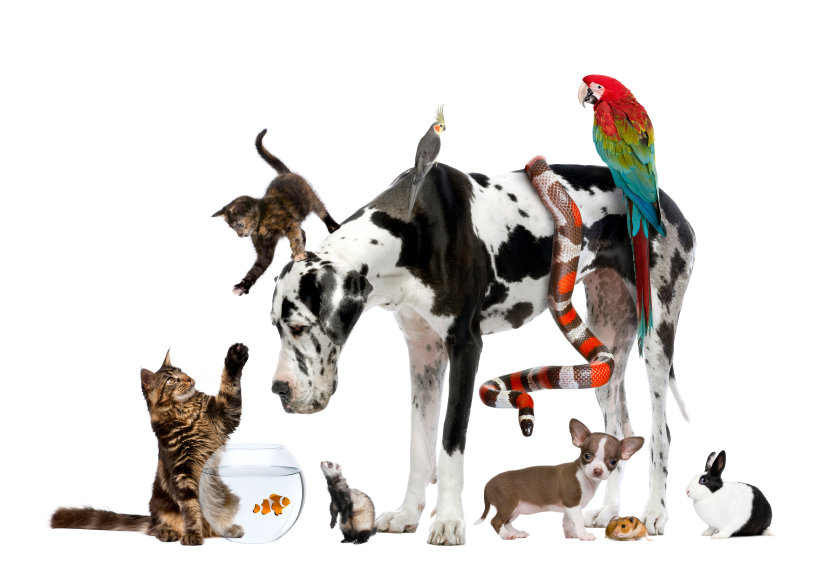
This sponsored post was prepared by C.J. Williams of Reformed Presbyterian Theological Seminary.
When Adam found that among the creatures there was not one suitable for him as a partner (Gen 2:20), it is not as though he (or God) first thought that there might indeed be an animal that would match him as a companion. The creation of Eve was not a “plan B” or a second attempt at finding partnership. The point of this failed search for a partner for Adam in the animal kingdom was to demonstrate the lesser status of the non-spiritual creatures, and how they cannot provide true companionship for a man with a soul who is made in God’s image. Only another human would do. Adam was not to find partnership with the lesser creatures; he was to have dominion over them (Gen 1:26). In spite of the old saying, a dog cannot be, nor were dogs designed to be, man’s best friend.
A curious trend in our culture wants to make them so, and go even beyond the old saying, by making dogs and other pets full-fledged kindred. Dog and cat food commercials tout their brands as being the healthiest choice for our little “family members,” and not a few pet owners casually refer to their pets as children. Some of this is lighthearted, and nobody denies that there is an enjoyment in pet ownership, but at what point are we supposed to suspect that our culture is purposefully turning the gift of dominion on its head by embracing the lesser creatures as equals?
We read in the Bible and know from archaeological evidence that ancient people groups often worshipped certain animals or idols of animals, which is basically a role reversal from the Biblical idea of dominion. Did you ever wonder why a golden calf, and not a golden … something else (Exodus 32)? Many would regard this phenomenon as a primitive impulse of the ancient world, but there is a corresponding spirit to the modern animal rights movement, which places animal life on par with, or even above, the value of human life. Extremists always stand out for what they are, just like those who worshipped the golden calf. I am more alarmed by the subtle shift of mainstream cultural attitudes that increasingly embrace the non-spiritual creatures as family and friends. One can only wonder where this is all headed, but it is not hard to track its progress.
With the advent of Disney movies, a generation of impressionable minds has been left thinking that wild animals are just little people in fur coats. When it first came out, the movie “Bambi” made it suddenly matter whether a hamburger was made from a deer or a cow, the latter animal garnering much less sympathy. Now, the debate has become whether it is moral to eat meat at all. When Mitt Romney strapped his dog carrier to the roof of his car to go on vacation in the 1970s, he was doing what every family did. Today, it is scandalous. The point is that the popular attitude toward human-animal relations has been shifting for some time. Today, we regularly humanize animals for entertainment and companionship, and proponents of vegetarianism are now moralists rather than nutritionists. While sexual bestiality is still taboo (for now), the current cultural norm can best be described as social bestiality. It is increasingly common to accept animals as our social equals.
Two things are at stake. The first is the unique nature of people as spiritual beings created in the image of God. Our relationships are the proving ground of faith and love, with our unity and companionship based on the high and holy purpose of glorifying God and enjoying Him. These things cannot be shared with lesser creatures that have only brute instinct to guide them. To blur the line between humans and animals is to allow the presupposition of evolution (which may be the root of social bestiality).
The second thing is the gift of dominion, and yes, it is a gift. Our authority over the creatures, in which we are allowed to use them wisely and humanely for our benefit, is one way in which we bear the image of God. Just as marriage reflects the love of Christ for His church (Ephesians 5), human dominion over the animals reflects the divine dominion over all. These two creation ordinances, marriage and dominion, are simultaneously under attack in our culture, but they are both essential for the reflection of God’s wisdom in the created order.
Owning a pet is a small enjoyment that many people innocently indulge (including me), but the apostle warned that the idolatrous heart has the tendency to “worship and serve the creature rather than the Creator” (Rom. 1:25). The trend of social bestiality may not amount to creature worship yet, but there is great reason for God’s people to faithfully bear witness to the Creator in the midst of this rising trend.
This sponsored post was prepared by C.J. Williams of Reformed Presbyterian Theological Seminary.











